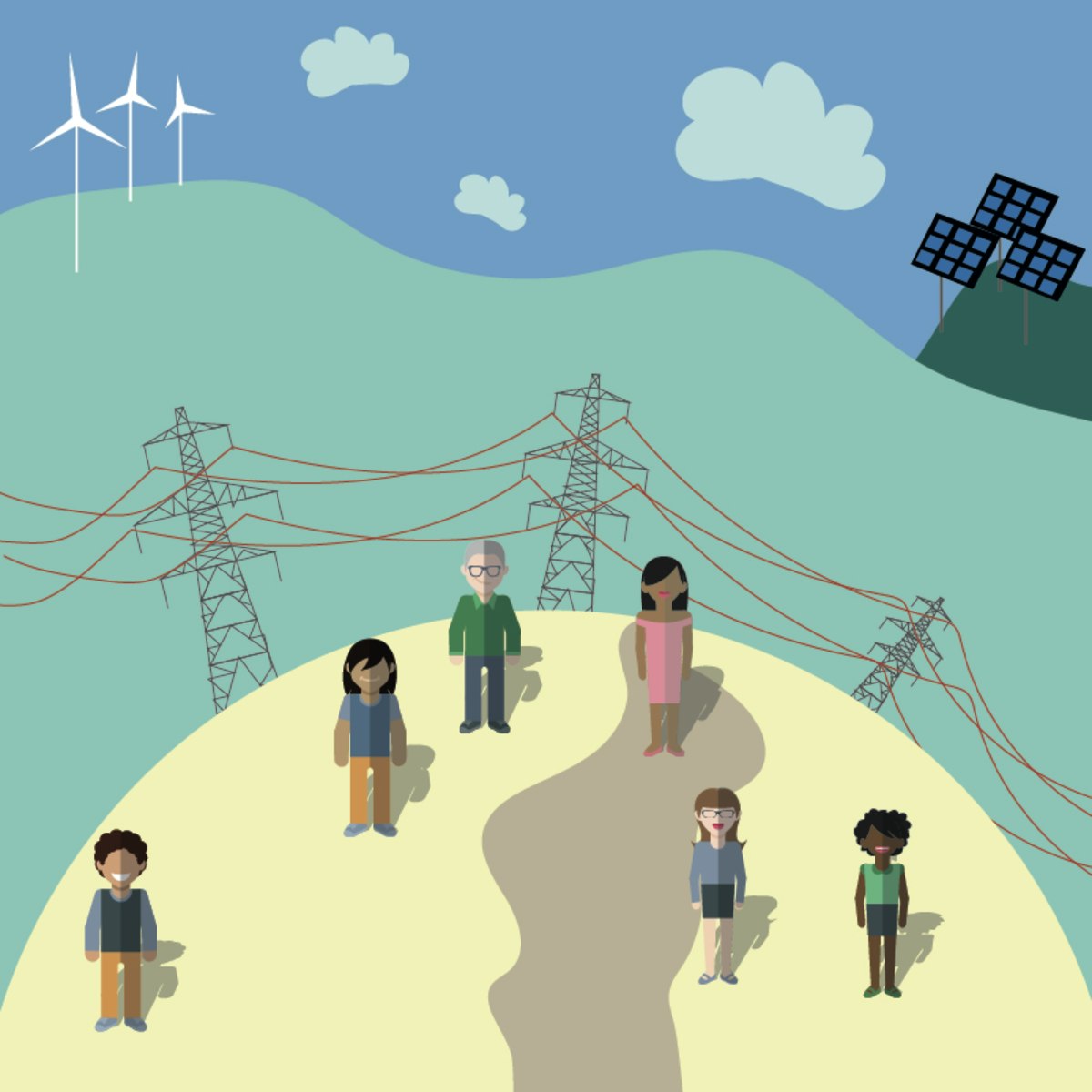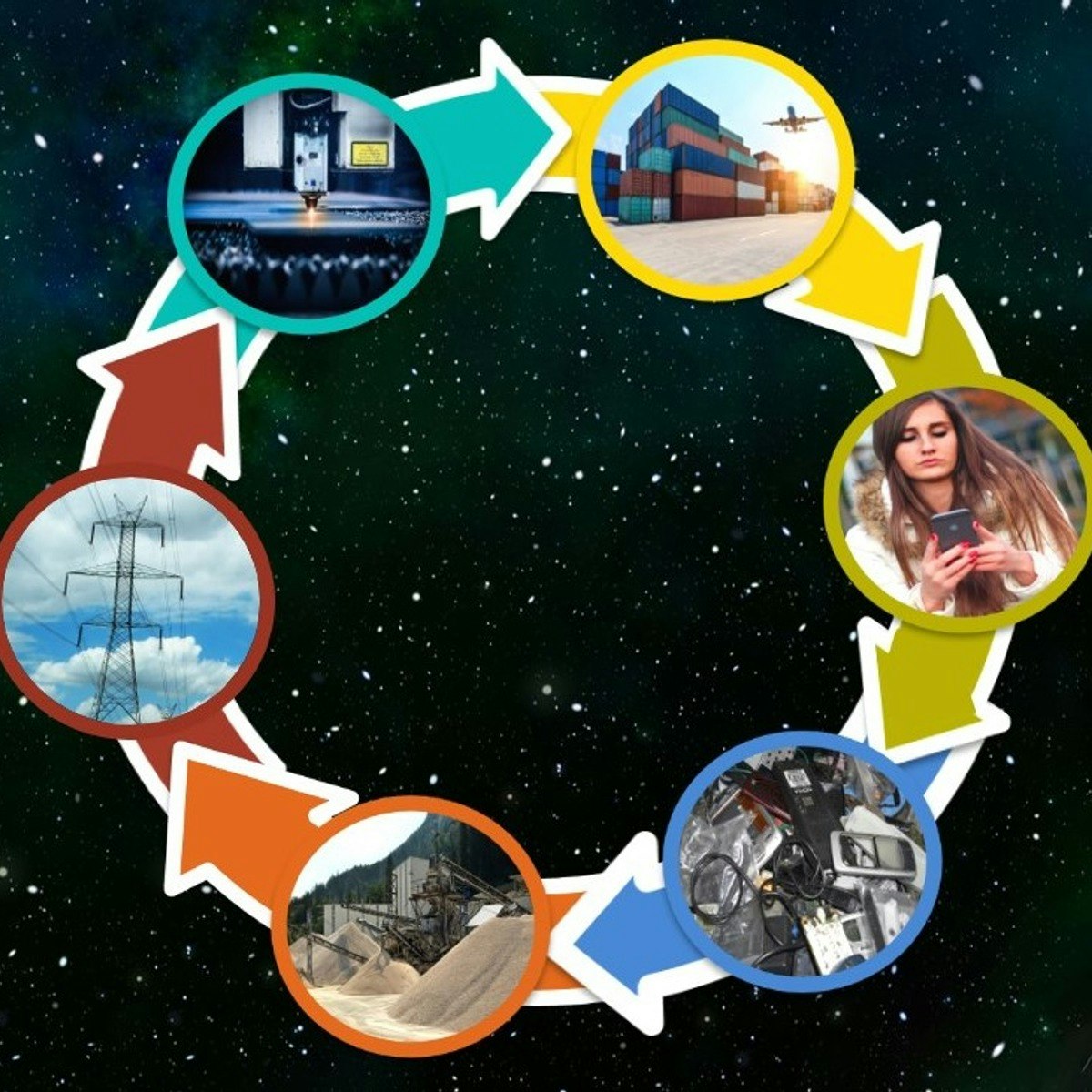Environmental Economist
Environmental Economist: Shaping Sustainable Futures
An Environmental Economist applies economic principles to understand and solve environmental problems. This field bridges the gap between economic activity and environmental impact, analyzing how human choices affect the natural world and how environmental policies impact economies. It's a vital discipline focused on finding sustainable paths forward for society.
Working as an Environmental Economist can be deeply rewarding. You might find yourself designing innovative policies to combat climate change, placing a monetary value on priceless natural resources like clean air and water, or advising governments and businesses on sustainable practices. It’s a career that directly tackles some of the most pressing global challenges, offering intellectual stimulation and the chance to make a tangible difference.
Overview of Environmental Economist
This section provides a foundational understanding of the environmental economics field, its unique position relative to general economics, and its critical role in today's world.
What is Environmental Economics?
Environmental Economics is a specialized branch of economics concerned with environmental issues. It focuses on the economic effects of environmental policies worldwide. Core objectives include identifying the most efficient ways to reduce pollution, managing natural resources sustainably, and valuing environmental goods and services that often lack market prices.
Professionals in this field study the economic costs of environmental degradation, such as the impact of air pollution on public health or the consequences of deforestation on biodiversity. They also analyze the benefits and costs of different environmental protection measures, helping decision-makers choose the most effective and economically sound strategies.
Ultimately, environmental economists aim to integrate environmental considerations into economic decision-making. They seek to ensure that economic development is compatible with long-term environmental health and resource availability for future generations.
These introductory courses provide a solid grounding in the fundamental concepts and applications of environmental economics.
Distinguishing Environmental from General Economics
While rooted in standard economic theory, environmental economics differs significantly from general economics in its focus and scope. General economics often prioritizes market efficiency, growth, and resource allocation based primarily on market signals. Environmental economics expands this view by explicitly incorporating the environment as a valuable asset and considering market failures related to environmental goods.
A key difference lies in the concept of 'externalities'. Environmental economists dedicate much effort to analyzing negative externalities, like pollution, where the cost to society is not reflected in the market price of a good or service. They develop methods to 'internalize' these costs, such as through taxes or regulations, making polluters accountable.
Furthermore, environmental economics places a strong emphasis on the long-term sustainability of resource use and the intrinsic value of ecosystems. It often deals with non-market valuation techniques to estimate the economic worth of things like biodiversity, clean water, or scenic landscapes, which are typically outside the scope of traditional market analysis.
These books delve deeper into the economic principles applied to environmental issues and the broader context of sustainability.
Role in Addressing Climate Change and Sustainability
Environmental economists are central figures in the global effort to address climate change and promote sustainability. They analyze the economic impacts of climate change, from sea-level rise affecting coastal properties to extreme weather events disrupting agriculture and infrastructure. Their work informs adaptation strategies and mitigation policies.
They are instrumental in designing and evaluating policies aimed at reducing greenhouse gas emissions. This includes developing market-based instruments like carbon taxes and emissions trading systems (cap-and-trade), assessing their effectiveness, and advising on their implementation. Their analysis helps find cost-effective ways to transition to a low-carbon economy.
Beyond climate change, environmental economists contribute broadly to the sustainability agenda. They work on issues like resource depletion, waste management, biodiversity loss, and water scarcity, always seeking solutions that balance economic development with environmental protection and social equity. Their tools help value the long-term benefits of preserving Natural Capital.
These courses explore the specific economic dimensions of climate change and sustainable development.
Typical Industries and Employers
Environmental economists find employment across various sectors. Government agencies at local, state, federal, and international levels are major employers. They work in environmental protection agencies, energy departments, resource management agencies, and central banks, developing and evaluating environmental regulations and policies.
International organizations such as the World Bank, the United Nations Environment Programme (UNEP), and the International Monetary Fund (IMF) also hire environmental economists to work on global environmental challenges, sustainable development projects, and climate finance.
The private sector increasingly seeks their expertise. Consulting firms hire environmental economists to advise businesses on environmental compliance, sustainability strategies, risk management, and navigating carbon markets. Energy companies, particularly in the renewable energy sector, employ them for market analysis and project evaluation. Think tanks and non-profit environmental organizations also rely on their research and analytical skills to advocate for evidence-based policies.
Key Responsibilities of an Environmental Economist
The day-to-day work of an Environmental Economist involves applying economic tools and analytical thinking to environmental challenges. Responsibilities range from detailed analysis to policy design and communication.
Conducting Cost-Benefit Analysis
A core task for environmental economists is conducting Cost-Benefit Analysis (CBA) for environmental projects and policies. This involves systematically estimating all the potential costs (e.g., implementation costs, economic disruptions) and benefits (e.g., improved health, ecosystem preservation, avoided damages) associated with a particular action, often over long time horizons.
The challenge lies in quantifying environmental benefits and costs, many of which are not traded in markets. Economists use various techniques, like contingent valuation or hedonic pricing, to assign monetary values to non-market goods like clean air or recreational opportunities.
The results of a CBA help policymakers understand the economic trade-offs involved and determine whether the expected benefits of a regulation or project justify its costs. This analysis provides a structured framework for decision-making, even when dealing with complex environmental impacts.
Valuing Natural Resources and Ecosystem Services
Environmental economists develop and apply methods to estimate the economic value of natural resources (like forests, fisheries, water) and the services provided by ecosystems (such as pollination, water purification, climate regulation). This valuation is crucial because the environment provides essential services that support human well-being and economic activity, yet these are often overlooked in traditional accounting.
Understanding the economic value of these services helps justify conservation efforts and sustainable resource management. For example, demonstrating the economic value of a wetland for flood control can support policies for its protection over development projects.
This involves complex techniques, acknowledging uncertainties and ethical considerations in placing monetary values on nature. The goal is not necessarily to 'commodify' nature but to make its value visible in economic terms to inform better decision-making.
This course introduces approaches to valuing natural capital.
This book explores the interaction between humans and the environment from a long-term perspective.
Designing Market-Based Instruments
Environmental economists play a key role in designing market-based instruments to address environmental problems, particularly pollution. These tools use market forces to incentivize environmentally friendly behavior, often seen as more efficient than traditional command-and-control regulations.
Examples include carbon pricing mechanisms like carbon taxes (a fee on greenhouse gas emissions) or cap-and-trade systems (setting a limit on total emissions and allowing companies to trade permits to emit). Economists analyze how to set the tax level or the emissions cap, how to distribute permits, and how these systems affect different industries and consumers.
They also work on designing subsidies for green technologies, deposit-refund systems for waste management, and payments for ecosystem services schemes. The aim is always to align economic incentives with environmental goals in the most cost-effective manner.
These courses cover market mechanisms like carbon pricing.
Collaboration and Communication
Environmental economists rarely work in isolation. Effective collaboration with scientists (like ecologists, climatologists, hydrologists), engineers, policymakers, lawyers, and community stakeholders is essential. They need to understand the scientific basis of environmental problems to accurately model their economic dimensions.
Communicating complex economic analyses to non-economist audiences is a critical skill. They must present findings clearly and concisely to policymakers, business leaders, and the public, explaining the rationale behind policy recommendations and the potential impacts of different choices.
This interdisciplinary collaboration ensures that economic solutions are scientifically sound, technically feasible, legally robust, and socially acceptable. It involves translating scientific data into economic terms and economic insights into actionable policy advice.
This book discusses the interaction between policy, economics, and climate change.
Formal Education Pathways
A strong educational foundation is typically required to become an Environmental Economist. The path usually involves specialized study at the undergraduate and graduate levels.
Undergraduate Foundations
A bachelor's degree is the minimum starting point. Relevant undergraduate majors include Economics, Environmental Science, Environmental Studies, Public Policy, or Mathematics/Statistics. A strong background in economics, particularly microeconomics and econometrics, is crucial.
Coursework in calculus, statistics, and potentially computer science provides necessary quantitative skills. Complementary courses in environmental science, ecology, or policy help build an understanding of the environmental issues that economic tools will be applied to.
Some universities offer specific undergraduate tracks or minors in environmental economics or sustainability, providing a more focused preparation. Internships with relevant organizations can provide valuable practical experience.
This introductory course provides a foundational understanding of microeconomic principles.
Graduate Programs and Specializations
Most professional roles, especially those involving research or significant policy analysis, require a graduate degree. A Master's degree (M.A., M.S., or M.P.P.) in Environmental Economics, Resource Economics, Agricultural Economics, Public Policy with an environmental focus, or Economics with relevant field courses is common.
These programs provide advanced training in economic theory, econometrics, cost-benefit analysis, non-market valuation techniques, and specific environmental policy areas (e.g., climate, energy, water, agriculture). Students develop sophisticated analytical and modeling skills.
Choosing a program often depends on career goals. Some programs emphasize policy analysis and practical application, suitable for government or consulting roles. Others are more research-oriented, preparing students for PhD studies or research positions.
Explore advanced topics in climate change economics through these courses.
Doctoral Studies (PhD)
A PhD is generally required for academic positions (university teaching and research) and senior research roles in government agencies, international organizations, or think tanks. PhD programs involve rigorous coursework in economic theory and econometrics, followed by several years of independent research culminating in a dissertation.
Specialized research areas within environmental economics are diverse. Examples include climate change economics (modeling impacts, designing mitigation policies), energy economics (renewable energy transitions, market design), resource economics (fisheries management, water allocation), behavioral environmental economics (understanding pro-environmental choices), development and environment (poverty-environment linkages), and econometrics applied to environmental data.
Pursuing a PhD requires a strong commitment to research, advanced quantitative skills, and a deep interest in pushing the frontiers of knowledge in the field. It offers the opportunity to become a leading expert in a specific area.
Accreditation and Certifications
Unlike fields such as accounting or engineering, environmental economics does not typically have mandatory professional certifications or licensures. Professional standing is primarily based on academic qualifications, research output, and practical experience.
However, belonging to professional associations like the Association of Environmental and Resource Economists (AERE) or regional counterparts can be valuable for networking, staying current with research, and professional development opportunities. Some related certifications in areas like sustainability reporting (e.g., GRI) or energy management might be beneficial depending on the specific career path within the broader field.
Focus remains heavily on demonstrating expertise through education, research publications, policy reports, and successful project implementation rather than formal certifications specific to environmental economics itself.
Online and Independent Learning Strategies
Beyond formal degrees, online learning and self-directed study offer valuable pathways to gain knowledge and skills in environmental economics, whether supplementing formal education or facilitating a career transition.
Core Topics for Self-Study
Individuals can build a strong foundation through self-study, focusing on core concepts. Key areas include microeconomic theory (especially welfare economics and market failures), introductory econometrics and statistics, environmental science fundamentals, and specific environmental economics topics like cost-benefit analysis, non-market valuation methods (e.g., contingent valuation, travel cost method), pollution control policy (taxes vs. permits), and natural resource management models.
Understanding concepts like externalities, public goods, discounting, and sustainability criteria is fundamental. Exploring different policy instruments and their real-world applications provides practical context. Staying updated on current environmental issues and related economic debates through journals, reports from international organizations, and reputable news sources is also important.
OpenCourser offers a vast library of courses across Finance & Economics and Environmental Sciences, allowing learners to tailor their curriculum.
These courses cover core environmental and sustainability concepts suitable for independent learning.
Project-Based Learning Opportunities
Applying theoretical knowledge through practical projects is crucial for skill development. Learners can undertake independent research projects using publicly available environmental and economic data. This could involve analyzing the impact of a local environmental policy, estimating the recreational value of a nearby park, or modeling the potential effects of a carbon tax using spreadsheet software or statistical packages like R or Stata.
Participating in data analysis competitions (e.g., on platforms like Kaggle) related to environmental topics can provide hands-on experience. Contributing to open-source projects related to environmental modeling or data visualization is another option. Volunteering with local environmental non-profits on projects requiring economic analysis can also offer practical exposure.
Building a portfolio of such projects demonstrates practical skills and initiative to potential employers, complementing formal or online coursework. OpenCourser's "Activities" section on course pages often suggests relevant projects.
This project-based course provides hands-on experience in ecosystem modeling.
Supplementing Education with Technical Skills
Online courses are excellent resources for acquiring specific technical skills vital for environmental economists. Proficiency in statistical software (R, Stata, Python with relevant libraries) is essential for data analysis and econometric modeling. Familiarity with Geographic Information Systems (GIS) software is increasingly valuable for spatial analysis of environmental issues.
Advanced spreadsheet skills (Excel) for data manipulation and basic modeling are fundamental. Depending on the specialization, knowledge of specific modeling software (e.g., GAMS for optimization, specialized Integrated Assessment Models) might be beneficial. Strong data visualization skills using tools like Tableau or libraries in R/Python are also important for communicating findings.
Online platforms offer numerous courses, from introductory tutorials to advanced workshops, allowing learners to acquire these technical competencies flexibly and affordably. OpenCourser’s Learner's Guide provides tips on structuring self-learning paths.
This course focuses on practical data analysis related to climate change.
Building a Portfolio for Job Applications
For those entering the field, especially via non-traditional routes or career changes, a portfolio showcasing relevant skills and knowledge is crucial. This portfolio can include completed projects from online courses, independent research analyses, policy briefs written on current environmental issues, or visualizations created from environmental data.
Contributions to blogs, articles summarizing key research findings, or presentations delivered at workshops or local events can also be included. If you've completed significant projects through online courses, ensure certificates of completion are readily available and consider highlighting key projects on your resume or LinkedIn profile.
The portfolio serves as tangible evidence of your capabilities, demonstrating your analytical skills, understanding of environmental economics principles, and ability to communicate complex information. It helps bridge the gap between learning and professional practice, making a compelling case to potential employers.
Essential Technical and Soft Skills
Success as an Environmental Economist requires a blend of strong analytical capabilities and effective interpersonal skills. Both technical proficiency and the ability to communicate and collaborate are paramount.
Quantitative Modeling Proficiency
Strong quantitative skills are fundamental. This includes proficiency in statistical analysis and econometrics to analyze data, test hypotheses, and estimate relationships between economic activities and environmental outcomes. Familiarity with statistical software packages like R, Stata, Python, or SAS is usually required.
Experience with various modeling techniques is often necessary. This might range from relatively simple spreadsheet models for cost-benefit analysis to more complex simulation models, optimization models, or Integrated Assessment Models (IAMs) used in climate change research. Depending on the role, skills in GIS for spatial data analysis can also be highly valuable.
The ability to choose appropriate modeling techniques, gather and manage data, implement the models correctly, and interpret the results critically is essential for providing robust, evidence-based analysis.
These careers often rely heavily on quantitative modeling skills.
Policy Analysis Frameworks
Environmental economists must be adept at applying economic frameworks to analyze environmental policies. This involves understanding criteria for policy evaluation, such as efficiency (achieving goals at minimum cost), equity (fair distribution of costs and benefits), and effectiveness (achieving the desired environmental outcome).
Knowledge of different policy instruments – regulations, taxes, subsidies, cap-and-trade systems, information disclosure – and their theoretical properties and practical implementation challenges is crucial. They need to assess the potential economic impacts of policies on different sectors, households, and regions.
This includes understanding the political economy of environmental policy – how policies are formulated, influenced by interest groups, and implemented in real-world contexts. Familiarity with regulatory impact assessment processes is also often required.
This course delves into global energy and climate policy.
This book examines the intersection of law, economics, and climate policy.
Stakeholder Communication Strategies
Excellent communication skills are vital. Environmental economists must be able to explain complex economic concepts and analytical results clearly and persuasively to diverse audiences, including policymakers, business leaders, scientists, and the general public, many of whom may not have an economics background.
This involves writing concise policy briefs, reports, and academic papers, as well as delivering effective oral presentations. Visualizing data and model results effectively is a key part of communication. Active listening skills are also important for understanding the perspectives and concerns of different stakeholders during consultations or collaborative projects.
Bridging the gap between technical analysis and practical decision-making requires tailoring communication style and content to the specific audience and context. Building trust and credibility through clear, objective communication is essential for influencing policy and practice.
Ethical Decision-Making in Resource Allocation
Environmental economics often involves difficult ethical considerations, particularly when valuing environmental goods or analyzing policies with uneven distributional impacts. Economists must be aware of the ethical dimensions of their work, such as how to weigh the interests of current versus future generations (intergenerational equity) or how to account for impacts on vulnerable populations (intragenerational equity).
Issues like assigning monetary values to human health or biodiversity raise profound ethical questions. While economic tools provide a framework for analysis, economists must be transparent about the assumptions made and the limitations of their methods. Recognizing the potential biases in analysis and striving for objectivity is critical.
Navigating these ethical dilemmas requires careful judgment, transparency, and an understanding of different ethical perspectives. It involves acknowledging that economic efficiency is not the only relevant criterion for decision-making.
This course touches upon ethical considerations in global contexts.
These books explore ethical and philosophical dimensions related to the environment.
Career Progression for Environmental Economists
Careers in environmental economics offer diverse pathways for growth, spanning academia, government, the private sector, and non-profit organizations. Progression often involves increasing specialization, responsibility, and leadership.
Entry-Level Roles
Graduates typically start in roles like Research Assistant, Policy Analyst, Junior Economist, or Environmental Consultant. In these positions, they support senior staff by collecting and analyzing data, contributing to reports, conducting literature reviews, and running basic economic models.
In government, entry-level roles might involve assisting in the development or evaluation of specific regulations. In consulting, tasks could include assessing the environmental impact of projects or helping clients comply with environmental policies. In academia or think tanks, research assistants support ongoing research projects.
These initial roles provide valuable experience in applying economic tools to real-world environmental problems and understanding the workings of different types of organizations. Building a strong foundation in analytical methods and gaining exposure to various policy areas are key objectives at this stage.
Mid-Career Transitions
With experience, environmental economists often specialize in specific areas like climate change, energy markets, water resources, or sustainable agriculture. Mid-career professionals take on greater responsibility, leading projects, managing small teams, and providing more strategic advice.
Transitions between sectors are common. An economist might move from a government agency to a consulting firm to gain private sector experience, or from academia to an international organization to work on global policy issues. Conversely, some move from consulting into government roles for greater policy influence.
At this stage, building a professional network, publishing research or policy reports, and developing expertise in a particular niche become important for career advancement. A Master's degree is typically expected, and a PhD becomes advantageous for more senior research or leadership roles.
Leadership Opportunities
Senior environmental economists often move into leadership positions. This can involve directing research programs in universities or think tanks, managing large teams of analysts in government agencies, leading sustainability initiatives within corporations, or becoming partners in consulting firms.
Leadership roles require not only deep technical expertise but also strong management, strategic thinking, and communication skills. Responsibilities may include setting research agendas, advising high-level policymakers or executives, managing budgets, and representing their organization externally.
Some experienced environmental economists establish their own consultancies or play influential roles in shaping national or international environmental policy debates. The ability to synthesize complex information and provide clear, strategic guidance is paramount at this level.
International Career Mobility
The field of environmental economics is inherently global, addressing transboundary issues like climate change and biodiversity loss. This creates significant opportunities for international work and career mobility.
Many environmental economists work for international organizations like the World Bank, IMF, UN agencies, or regional development banks, often involving postings in different countries. Academic researchers frequently collaborate internationally and attend global conferences. Consulting firms with international operations also offer opportunities for cross-border projects and assignments.
Fluency in multiple languages can be a significant asset for international roles. Understanding different cultural contexts and policy landscapes is crucial for working effectively on global environmental challenges. This international dimension adds another layer of interest and opportunity to the career path.
This course looks at climate change mitigation in developing countries.
Industries Hiring Environmental Economists
The demand for environmental economists spans multiple sectors, driven by increasing awareness of environmental challenges and the need for economically sound solutions.
Government and Regulatory Agencies
Government bodies are primary employers. At the national level, agencies like the Environmental Protection Agency (EPA) in the US, environment ministries, energy departments, and agricultural ministries rely on environmental economists to design, implement, and evaluate environmental regulations, conduct cost-benefit analyses, and provide policy advice.
State and local governments also hire environmental economists for similar roles tailored to regional issues, such as managing local air quality, water resources, or land use planning. Central banks and finance ministries are increasingly incorporating environmental risk and climate change into macroeconomic analysis, creating new opportunities.
These roles offer the chance to directly influence public policy and address pressing environmental concerns through regulatory frameworks and public investments.
International Organizations
Major international organizations focused on development, finance, and environmental governance are significant employers. The World Bank, International Monetary Fund (IMF), United Nations (including UNEP, UNDP, FAO), Organisation for Economic Co-operation and Development (OECD), and regional development banks (e.g., Asian Development Bank, Inter-American Development Bank) all employ environmental economists.
In these roles, economists work on global environmental issues, advise national governments on sustainable development strategies, finance environmental projects in developing countries, conduct cross-country research, and contribute to international climate negotiations and agreements. These positions often involve working in multicultural teams and addressing complex global challenges.
These courses are offered by the IMF, reflecting the role of such organizations.
Energy and Renewable Resource Sectors
The energy sector, particularly the rapidly growing renewable energy industry, hires environmental economists. They analyze energy markets, evaluate the economics of renewable energy projects (solar, wind, etc.), assess the impact of energy policies, and help companies navigate carbon pricing and environmental regulations.
Companies involved in natural resource extraction (mining, forestry, fisheries) also employ environmental economists, often focusing on sustainable resource management, environmental impact assessment, and compliance. The agriculture and food sectors increasingly need expertise in sustainable practices and climate adaptation.
These roles involve applying economic principles to specific industry challenges, helping businesses operate more sustainably and adapt to changing environmental constraints and opportunities.
This course focuses on sustainable agribusiness.
Consulting Firms and Think Tanks
Private consulting firms, ranging from large multinational consultancies to specialized environmental boutiques, hire environmental economists to advise clients (both businesses and governments) on a wide array of issues. This includes environmental due diligence, sustainability strategy, climate risk assessment, regulatory compliance, and litigation support.
Think tanks and non-profit research organizations employ environmental economists to conduct independent research, analyze policy options, and contribute to public debate on environmental issues. These roles often involve publishing reports, organizing workshops, and engaging with policymakers and the media.
These positions offer variety in projects and clients, requiring strong analytical, communication, and problem-solving skills. They provide platforms to apply economic expertise to diverse environmental challenges across different sectors.
Tools and Methodologies in Environmental Economics
Environmental economists utilize a diverse toolkit of analytical methods and software to assess environmental problems and evaluate solutions. These range from established economic techniques to newer approaches leveraging big data and behavioral insights.
Valuation and Assessment Tools
A key part of the toolkit involves methods for valuing environmental goods and services that lack market prices. Techniques include stated preference methods (like contingent valuation surveys) and revealed preference methods (like hedonic pricing or the travel cost method). Cost-Benefit Analysis (CBA) is a standard framework for evaluating policies by comparing total benefits against total costs, often requiring sophisticated valuation inputs.
Life Cycle Assessment (LCA) is another important tool, used to evaluate the environmental impacts of a product or service throughout its entire lifecycle, from raw material extraction to disposal. While not strictly an economic tool, its results often feed into economic analyses of sustainability.
Mastery of these assessment tools allows economists to quantify environmental impacts and policy effects in economic terms, facilitating informed decision-making.
This course introduces Life Cycle Assessment.
Modeling Techniques
Econometric modeling is central to analyzing relationships between economic activity and environmental outcomes using real-world data. Environmental economists use various econometric techniques, including regression analysis, time-series analysis, and causal inference methods, often applied to large datasets.
Integrated Assessment Models (IAMs) are complex computer models widely used in climate change economics. They link representations of the economy, energy system, land use, and climate system to simulate the long-term interactions between human activities and the global environment under different policy scenarios.
Other modeling approaches include Computable General Equilibrium (CGE) models to assess economy-wide impacts of policies, simulation models for resource management (e.g., fisheries, forests), and optimization models for finding cost-effective pollution control strategies.
This book provides context on assessing climate change impacts, often done using models.
Big Data and Ecological Forecasting
The increasing availability of large-scale environmental and economic datasets ("big data") is creating new opportunities and challenges. Environmental economists are leveraging satellite imagery, sensor networks, and detailed economic transaction data to analyze environmental trends and policy impacts with greater spatial and temporal resolution.
Machine learning techniques are being applied for tasks like ecological forecasting (e.g., predicting deforestation patterns or fishery stock levels), identifying causal relationships in complex systems, and improving the accuracy of environmental valuation estimates. These advanced analytical techniques require skills in data science alongside economic expertise.
These methods allow for more nuanced and data-driven analysis of environmental issues, potentially leading to more effective and targeted policies. Familiarity with data science tools is becoming increasingly advantageous.
Behavioral Economics Insights
Insights from behavioral economics are increasingly being incorporated into environmental economics. This field recognizes that human decisions often deviate from the assumptions of perfect rationality used in traditional economic models. Understanding psychological biases, social norms, and heuristics can help design more effective environmental policies.
Behavioral approaches are used to design interventions ("nudges") that encourage pro-environmental behaviors, such as energy conservation or recycling, without relying solely on mandates or financial incentives. Experiments, both in the lab and in the field, are used to test the effectiveness of different policy designs and behavioral interventions.
Integrating behavioral insights allows for a more realistic understanding of how individuals and firms respond to environmental policies and can lead to more effective strategies for promoting sustainable choices.
Ethical Challenges in Environmental Economics
The work of environmental economists often intersects with complex ethical dilemmas. Balancing competing values and ensuring fairness are inherent challenges in applying economic tools to environmental issues.
Balancing Economic Growth with Sustainability
A fundamental tension exists between promoting economic growth, often measured by GDP, and ensuring long-term environmental sustainability. Environmental economists grapple with how to define and measure sustainable development, which requires maintaining environmental quality and resource availability for future generations while improving current living standards.
This involves debates about whether continuous economic growth is compatible with planetary limits and how to decouple economic activity from environmental degradation. Valuing the long-term benefits of conservation against the short-term economic gains from resource exploitation poses significant ethical challenges, particularly concerning the appropriate discount rate to use for future costs and benefits.
Finding pathways that achieve human well-being within ecological limits requires careful consideration of trade-offs and alternative models of economic progress.
This course discusses sustainability transitions.
Equity Considerations in Policy Design
Environmental policies, even if efficient overall, can have uneven impacts on different groups within society. For example, a carbon tax might disproportionately affect low-income households who spend a larger share of their income on energy. Environmental regulations might impact job prospects differently across regions or industries.
Environmental economists must analyze these distributional consequences and consider equity implications when designing policies. This involves identifying potential winners and losers and exploring mechanisms to mitigate adverse impacts, such as revenue recycling schemes from carbon taxes or targeted assistance for affected communities.
Balancing efficiency goals with fairness and social justice considerations is a key ethical challenge. It requires careful analysis and transparent discussion about who bears the costs and who receives the benefits of environmental protection.
Handling Corporate Greenwashing Claims
As environmental concerns grow, companies increasingly engage in marketing and public relations emphasizing their environmental credentials. Environmental economists may be involved in assessing the credibility of these claims, distinguishing genuine sustainability efforts from "greenwashing" – misleading claims about environmental performance.
This requires rigorous analysis of corporate environmental data, understanding industry benchmarks, and evaluating the actual impact of corporate sustainability initiatives. Developing robust metrics and standards for environmental performance reporting is crucial for accountability and transparency.
Maintaining objectivity and independence when evaluating corporate claims, especially when employed as consultants, presents an ethical challenge. It requires a commitment to evidence-based assessment and resisting pressures to endorse unsubstantiated claims.
Global North-South Resource Justice Debates
Many environmental problems, particularly climate change, involve significant international equity dimensions. Historically industrialized countries (Global North) have contributed disproportionately to greenhouse gas emissions, while developing countries (Global South) are often more vulnerable to the impacts and have fewer resources to adapt.
Environmental economists engage in debates about fair burden-sharing for climate mitigation and adaptation, technology transfer, and climate finance. This involves analyzing different principles of equity (e.g., polluter pays, ability to pay, historical responsibility) and their implications for international agreements and resource allocation.
Navigating these complex North-South dynamics requires sensitivity to historical context, global power imbalances, and differing development priorities, posing profound ethical challenges in the pursuit of global environmental solutions.
This book explores related themes of globalization and equity.
Emerging Trends in Environmental Economist Roles
The field of environmental economics is continually evolving, influenced by technological advancements, changing policy landscapes, and a growing understanding of environmental systems. Several trends are shaping future roles and skill requirements.
Impact of AI on Environmental Modeling
Artificial intelligence (AI) and machine learning are increasingly being applied in environmental analysis. This includes using AI for better prediction of environmental changes (e.g., climate impacts, species distribution), optimizing resource management, and analyzing large, complex datasets from sensors and satellites.
Environmental economists will need to understand how to leverage these tools, collaborate with data scientists, and critically evaluate the outputs of AI models. This trend may automate some routine data analysis tasks but also create demand for economists skilled in interpreting complex model results and integrating them into economic analysis and policy design.
Familiarity with AI concepts and applications relevant to environmental issues will likely become increasingly important.
Biodiversity Credit Markets
Following the model of carbon markets, there is growing interest in developing markets for biodiversity credits or offsets. The idea is to create financial incentives for activities that protect or restore biodiversity, allowing developers or companies to compensate for unavoidable impacts.
Environmental economists are involved in designing these nascent markets, tackling challenges such as defining and measuring biodiversity units, ensuring the additionality and permanence of conservation actions, and establishing robust monitoring and verification systems. This emerging area requires expertise in ecological principles, market design, and valuation techniques.
The development of biodiversity finance mechanisms represents a new frontier for applying economic instruments to conservation challenges.
Circular Economy Integration
The concept of a circular economy – moving away from a linear "take-make-dispose" model towards systems that minimize waste and maximize resource reuse – is gaining traction globally. Environmental economists play a role in analyzing the economic feasibility and impacts of circular business models and policies.
This includes evaluating the costs and benefits of product redesign for durability and recyclability, developing policies to incentivize reuse and remanufacturing, and modeling the macroeconomic effects of transitioning to a more circular system. Expertise in industrial ecology, supply chain management, and waste policy is valuable in this context.
Integrating circular economy principles into economic analysis is becoming a key area of focus for sustainable development.
This course provides an introduction to the circular economy.
Climate Risk Disclosure Regulations
There is a growing global trend towards mandatory disclosure of climate-related financial risks by corporations and financial institutions. Environmental economists are needed to help develop methodologies for assessing these risks (both physical risks from climate impacts and transition risks from policy changes) and their potential financial implications.
They work with companies to integrate climate considerations into risk management and strategic planning, and with regulators to design effective disclosure frameworks. This requires combining expertise in climate science, economics, and finance. The integration of environmental factors into mainstream financial analysis represents a major shift.
These courses address ESG and climate finance.
Frequently Asked Questions
Here are answers to some common questions about pursuing a career as an Environmental Economist.
Is a PhD required for senior roles?
While a PhD is typically necessary for academic careers and high-level research positions in think tanks or international organizations, it is not always required for senior roles in government or the private sector (consulting, industry). A Master's degree combined with significant relevant experience can lead to senior analyst, management, or leadership positions, particularly those focused on policy implementation or consulting practice rather than original research.
However, a PhD provides deeper theoretical knowledge and advanced research skills, which can be advantageous for tackling complex analytical challenges and can accelerate progression to certain senior roles, especially those involving independent research direction or highly specialized expertise.
How does this career differ from environmental science?
Environmental science focuses on understanding the natural processes of the environment (ecology, geology, chemistry, atmospheric science) and the impact of human activities on these systems. Environmental economics applies economic principles and tools to analyze environmental problems and design policies.
While both fields address environmental issues, their approaches differ. Environmental scientists study the physical, chemical, and biological aspects of environmental problems. Environmental economists focus on human behavior, incentives, costs, benefits, and market mechanisms related to those problems. There is significant overlap and collaboration, but the core disciplines and methodologies are distinct.
Explore courses in Environmental Sciences to see the difference in focus.
What industries offer the highest salaries?
Salary levels can vary significantly based on location, experience, education level, and sector. Generally, senior positions in private consulting firms and certain roles within the finance sector (e.g., focusing on ESG investing or climate risk) tend to offer higher compensation compared to government or non-profit roles. International organizations can also offer competitive salaries, often with additional benefits for overseas postings.
Academic salaries vary widely by institution type and rank. Entry-level positions across all sectors typically offer more modest starting salaries. It's important to research salary benchmarks for specific roles and locations using resources like the Bureau of Labor Statistics (for US data) or industry-specific surveys.
Can this role transition to climate tech startups?
Yes, skills developed as an environmental economist can be valuable in the growing climate tech sector. Startups developing new technologies or business models for climate mitigation or adaptation often need expertise in market analysis, policy navigation, economic modeling, and assessing the financial viability of their solutions.
Economists can help startups understand market opportunities, design business models compatible with climate policies (like carbon pricing), secure funding by demonstrating economic value, and evaluate the impact of their technologies. Roles might include market analyst, business development manager, or sustainability strategist within a climate tech company.
How volatile is job demand in this field?
Demand for environmental economists has generally been stable to growing, driven by increasing societal focus on climate change and sustainability. Government regulations, international agreements, corporate sustainability initiatives, and investor interest in ESG factors all contribute to demand.
However, like many fields, demand can be influenced by economic cycles and government funding priorities. Funding for environmental agencies or specific research areas can fluctuate. Yet, the long-term structural drivers – the need to manage environmental resources and transition to a low-carbon economy – suggest continued relevance and demand for expertise in environmental economics. According to the U.S. Bureau of Labor Statistics, employment for environmental scientists and specialists (a related field) is projected to grow, indicating positive prospects for related environmental professions.
What languages are valuable for international work?
For international roles, proficiency in languages beyond English can be a significant advantage. Depending on the organization and geographic focus, fluency in official UN languages (French, Spanish, Arabic, Chinese, Russian) is often highly valued. Spanish and French are particularly useful for work with organizations focused on Latin America or Africa/Europe, respectively.
Knowledge of languages relevant to specific regions where environmental projects or policies are being implemented (e.g., Portuguese for Brazil, Mandarin for China, Hindi for India) can also be beneficial. Language skills facilitate communication with local stakeholders, partners, and government officials, enhancing effectiveness in international contexts.
Concluding Thoughts
Embarking on a career as an Environmental Economist is a path that demands rigorous analytical skills, a deep understanding of both economic principles and environmental challenges, and a commitment to finding sustainable solutions. It offers the profound satisfaction of applying your expertise to some of the most critical issues facing our planet and society. While the journey requires significant education and continuous learning, the potential to contribute meaningfully to shaping a more sustainable and equitable future is immense. Whether you are just starting your educational journey, considering a career pivot, or seeking to deepen your impact, the field of environmental economics provides a challenging and rewarding arena to make a difference.




























